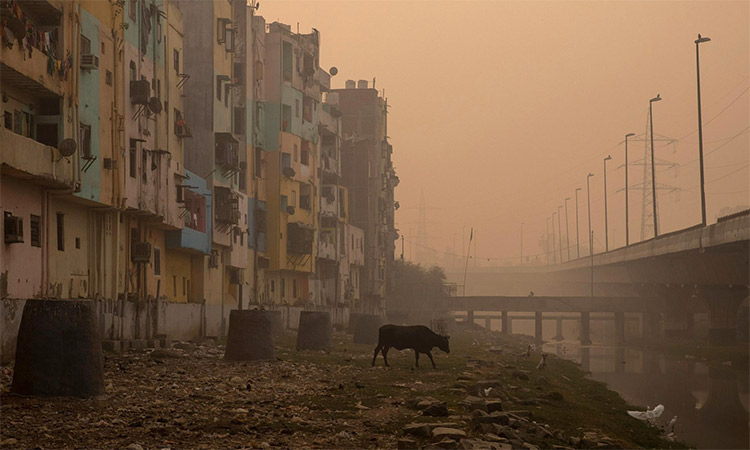India sets sights on Climate Smart Cities

Meena Janardhan
Writer/Editor/Consultant. She has over 25 years of experience in the fields of environmental journalism and publishing.

The CSCAF initiative intends to inculcate a climate-sensitive approach to urban planning and development in India.
The country has been reeling from a series of natural disasters over the past few years. Urban areas and cities are struggling to handle the onslaught as city planners rarely take climate risks into consideration while planning. For instance, the city of Hyderabad this month saw its heaviest rainfall in a century, which left 70 dead and caused $77 million damage to roads and drains.
The Global Commission on the Economy and Climate has said that this design oversight and lack of preparation is a global problem and is expected to be hugely costly, with about $90 trillion likely to be spent worldwide building and updating infrastructure by 2030.
By 2030, India is expected to be home to seven megacities with a population of more than 10 million, according to government projections. This is alarming if we consider that UN’s disaster risk agency ranks India among the top 10 countries globally in disaster deaths with a toll of 98,000 lives lost between 1996 and 2015.In the last decade, an increasing frequency of cyclones, floods, heat waves, water scarcity and drought-like conditions have had adverse impacts on many of our cities. Such extreme events and risks cause loss of life as well as impact the economic growth.
It is with this in mind that India has its sight on climate smart cities. The objective of CSCAF is to provide a clear roadmap for cities towards combating climate change while planning and implementing their actions, including investments. The CSCAF initiative intends to inculcate a climate-sensitive approach to urban planning and development in India. The Climate Centre for Cities under the National Institute of Urban Affairs is supporting the implementation.
The Ministry press release points out that as the lockdowns lift, cities face many challenges in providing safe, affordable, and equitable modes of transport that enable social distancing. Limited public transport options, narrow and crowded sidewalks, particularly in market places, and deterioration of mental health are key issues that must be addressed. Cities around the world, such as Bogota, Berlin, and Milan have responded by transforming streets for walking and cycling to ensure safe mobility during COVID-19.
This assessment framework was developed after review of existing frameworks and assessment approaches adopted throughout the world followed by series of extensive consultative process with more than 26 organizations and 60 experts from different thematic areas. The framework has 28 indicators across five categories: (1) energy and green buildings, (2) urban planning, green cover and biodiversity, (3) mobility and air quality, (4) water management and (5) waste management. The indicators are progressive in nature so that cities can assess where they stand in their current state and can already know the actions that will enable a better ranking in the future and consequent increase in climate resilience.
The key outcomes that are expected to emerge are status and benchmarking, capacity building and help, and cross learning. The framework is also expected to create awareness, citizen engagement, and an environment of KPI-driven spending and circular economy. The focus is clearly on the community, the neighbourhood and the citizen and the tangible steps that can be taken towards clear impacts.
The ‘Streets for People’ Challenge is the response to the need for making our cities more walkable and pedestrian friendly. The Challenge builds on the advisory issued by the Ministry for the holistic planning for pedestrian-friendly market spaces, earlier this year. The Challenge will support cities across the country to develop a unified vision of streets for people in consultation with stakeholders and citizens. Adopting a participatory approach, cities will be guided to launch their own design competitions to gather innovative ideas from professionals for quick, innovative, and low-cost tactical solutions.
It aims to inspire cities to create walking-friendly and vibrant streets through quick, innovative, and low-cost measures. All cities participating in the challenge shall be encouraged to use the ‘test-learn-scale’ approach to initiate both, flagship and neighbourhood walking interventions. The interventions can include inter alia creating pedestrian-friendly streets in high footfall areas, re-imagining under-flyover spaces, re-vitalizing dead neighbourhood spaces, and creating walking links through parks and institutional areas.
Fit India Mission, under Ministry of Youth Affairs and Sports, along with the India program of the Institute for Transport Development and Policy partner the Smart Cities Mission.







